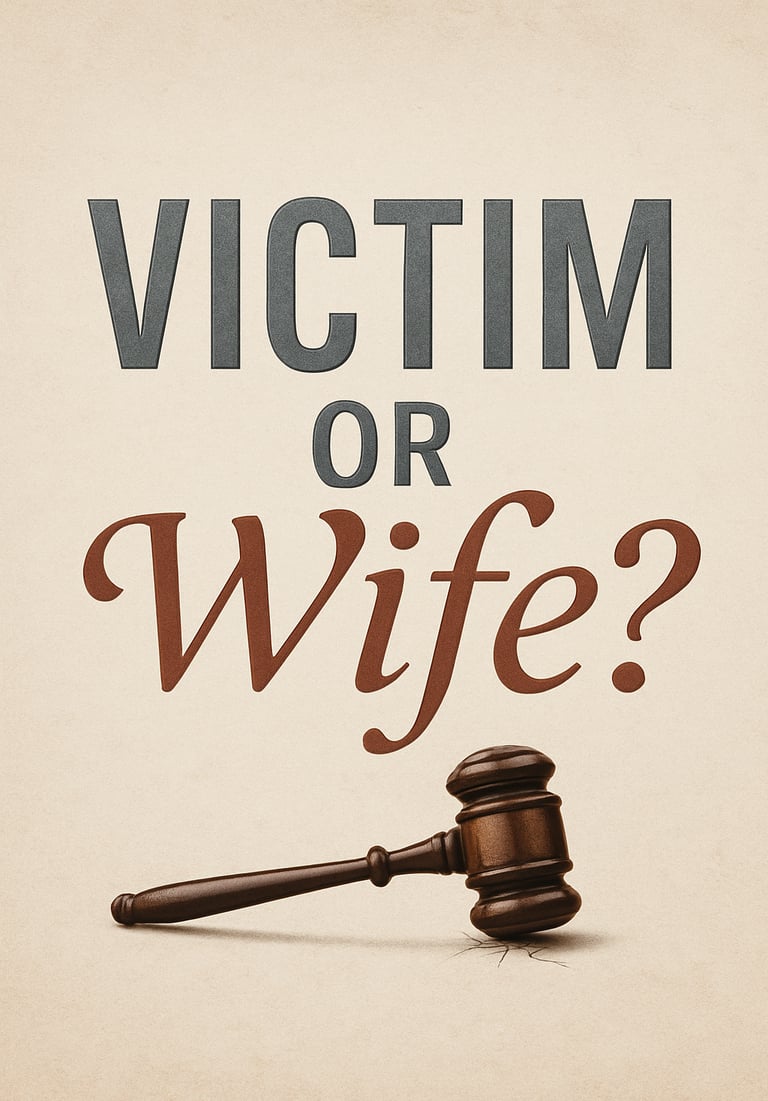Delhi HC Bail in POCSO Case: Can a Husband Be a 'Victimizer' When There Is No 'Victim'?
Delhi High Court's interim bail in a POCSO case sparks a legal firestorm. Explore the clash between strict statutory law, religious personal laws, and fundamental rights of consenting adults in this groundbreaking ruling.
Adv Nadeem Saifi | Partner | Altius Astra Attorneys
9/20/20253 min read


The Unprecedented Facts of the Case:
The case of Hamid Raza v. State of NCT of Delhi is anything but ordinary. The facts read more like a social dilemma than a standard criminal charge sheet.
The Allegation: An FIR was registered against a 24-year-old man under Section 363/376 of the IPC and Section 6 of the POCSO Act, alleging a relationship with a minor.
The Twist: The young woman in question, now 20, was indeed a minor at the time the relationship began. However, the couple subsequently entered into a legally valid marriage under Islamic law, solemnized by a Qazi, and have an infant son together.
The Absence of a Complaint: Crucially, there is no traditional complainant. The case rests solely on the state’s action based on the girl’s age at the inception of the relationship, rendering her consent legally void.
Justice Monga aptly described the situation as "peculiar," where the state’s machinery has created a scenario where both the alleged perpetrator and the purported victim are imprisoned—he in a jail, and she, along with their son, in a Child Welfare Centre, which she describes as "forcible confinement."
The Court's Reasoning:
Justice Monga’s interim bail order is not a final adjudication on the merits of the POCSO case, but it offers a powerful glimpse into the court’s leanings. The decision was driven by several compelling factors:
The Sanctity of Marriage: The court took serious note of the valid Islamic marriage certificate on record. This introduces a critical conflict between personal laws that recognize such marriages and the secular, age-based strict liability imposed by POCSO.
The Voice of the 'Victim': The prosecutrix’s presence in court, affirming her status as a willing wife and mother, fundamentally undermines the prosecution’s narrative of victimhood. Her detention in a welfare home against her will raises serious questions about the state’s role in protecting versus controlling young women.
Deprivation of Liberty: The court highlighted the profound irony of a loving couple and their child being separated and incarcerated by the state in a case where "neither considers the other a victim." This touches upon fundamental rights to life, liberty, and family under Article 21 of the Constitution.
POCSO vs. Personal Law vs. Constitutional Rights
This Delhi High Court bail order opens a Pandora's box of legal-philosophical questions that the Indian judiciary will inevitably have to address.
The Iron Fist of POCSO: The POCSO Act is a zero-tolerance legislation designed to protect children from sexual abuse. Its provisions are absolute; consent of a minor is irrelevant. But does this rigidity cause injustice in cases involving adolescent romance that culminates in marriage?
The Personal Law Angle: Islamic law, like other personal laws, sets its own criteria for marriageable age and consent. When a marriage is legally valid under one system of law, can it be the sole basis for a prosecution under another? Legal experts like Professor Faizan Mustafa, who assisted the court, would argue that this conflict requires a sensitive, balanced approach rather than a mechanical one.
The Rights of the Adult Woman: Perhaps the most critical question is: What about the agency of the woman now that she is an adult? By continuing to treat her as a 'child victim' and confining her, is the state effectively denying her the right to choose her life and family?
This case is far from over. The matter is listed for further hearing, and the final judgment will be keenly watched. It could set a significant legal precedent for minor marriage cases in India. Will the court carve out a judicial exception based on subsequent marriage and present consent? Or will it reaffirm the absolute nature of the POCSO Act, leaving it to Parliament to legislate any exceptions?
The interim bail itself is a strong message. By allowing the husband to meet his wife and son daily, the court is prioritizing family unity and humane justice while the larger legal battle is fought.
Conclusion:
The Delhi High Court’s decision is more than just a bail order; it’s a litmus test for the evolution of Indian law. It forces us to ask: Can our justice system balance the uncompromising protection of children with the realities of complex human relationships and the fundamental rights of adults?
This case isn’t just about one couple; it’s about the soul of our legal system. Will this ruling force a rethink of how we apply protective laws? The final verdict could redefine the boundaries between state authority, legal absolutes, and individual freedom.
In a ruling that strikes at the very heart of legal interpretation, the Delhi High Court has unleashed a torrent of debate by granting interim bail in a case under the stringent POCSO Act. Justice Arun Monga’s decision pivots on a startling premise: a case with no clear victim, no aggrieved complainant, and a prosecutrix who is now the accused’s wife and mother of his child. This POCSO case ruling challenges the automatic application of the law when a subsequent marriage and consent complicate the facts. Is the judiciary signaling a need for nuance in the blind application of statutes?
Altius Astra Attorneys
A premier law firm based in Delhi, India, offering legal representation across various practice areas for citizens rights and interests.
© 2025. Altius Astra Attorneys. All rights reserved.
Contact Us
📞 9899290789, 9818786756
📧 contact@altiusastra.com
3C-ED Block, Madhuban Chowk, Pitampura, Delhi-110034
DISCLAIMER
